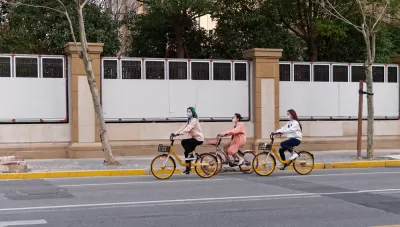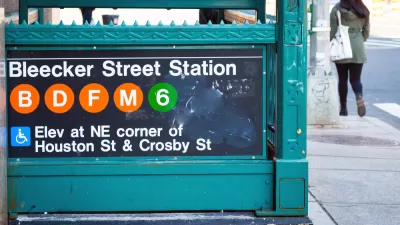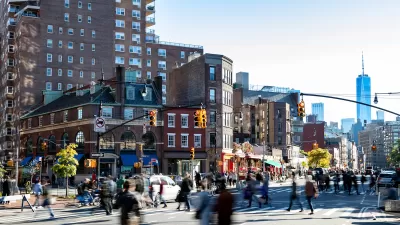Access (the ease of reaching desired destinations) is a key factor in transport, sustainability, and urban planning. This new study applies multimodal accessibility analysis to 4 modes in 117 cities in 6 countries, illustrated graphically.

From the abstract for new research published in NPJ Urban Sustainability on May 27 and available for open access:
Access (the ease of reaching valued destinations) underpins land use and transport infrastructure planning. The importance of access in transport, sustainability, and urban economics is increasingly recognized. In particular, access provides a universal unit of measurement to examine cities for the efficiency of transport and land use systems. This paper examines the relationship between population-weighted access and metropolitan population in global metropolitan areas (cities) using 30-minute cumulative access to jobs for 4 different modes of transport; 117 cities from 16 countries and 6 continents are included. The results indicate that sprawling development with intensive road network in American cities produces modest automobile access relative to their sizes, but American cities lag behind globally in transit and walking access; Australian and Canadian cities have lower automobile access, but better transit access than American cities; combining compact development with an intensive network produces the highest access in Chinese and European cities for their sizes. Hence density and mobility co-produce better access. This study finds access to jobs increases with populations sublinearly, so doubling metropolitan population results in a less than double access to jobs. The relationship between population and access characterizes regions, countries and cities, and significant similarities exist between cities from the same country.

FULL STORY: Urban Access Across the Globe: An International Comparison of Different Transport Modes

Planetizen Federal Action Tracker
A weekly monitor of how Trump’s orders and actions are impacting planners and planning in America.

The Simple Legislative Tool Transforming Vacant Downtowns
In California, Michigan and Georgia, an easy win is bringing dollars — and delight — back to city centers.

San Francisco's School District Spent $105M To Build Affordable Housing for Teachers — And That's Just the Beginning
SFUSD joins a growing list of school districts using their land holdings to address housing affordability challenges faced by their own employees.

In More Metros Than You’d Think, Suburbs are Now More Expensive Than the City
If you're moving to the burbs to save on square footage, data shows you should think again.

The States Losing Rural Delivery Rooms at an Alarming Pace
In some states, as few as 9% of rural hospitals still deliver babies. As a result, rising pre-term births, no adequate pre-term care and "harrowing" close calls are a growing reality.

The Small South Asian Republic Going all in on EVs
Thanks to one simple policy change less than five years ago, 65% of new cars in this Himalayan country are now electric.
Urban Design for Planners 1: Software Tools
This six-course series explores essential urban design concepts using open source software and equips planners with the tools they need to participate fully in the urban design process.
Planning for Universal Design
Learn the tools for implementing Universal Design in planning regulations.
Smith Gee Studio
City of Charlotte
City of Camden Redevelopment Agency
City of Astoria
Transportation Research & Education Center (TREC) at Portland State University
US High Speed Rail Association
City of Camden Redevelopment Agency
Municipality of Princeton (NJ)





























